The final four episodes of Dispatch are out now, and the story’s final arc largely fulfills — and sometimes exceeds — the promising expectations set forth both by its earlier episodes and its inspirations. The end result is an experience that proudly stands alongside the best of its peers in the genre.
Well Well Well, Look Who’s Finally Here
While Dispatch was billed as a workplace comedy-drama by its creators, the narrative arc of the first four episodes align more closely to an underdog/washed-up coach sports movie like Hoosiers. There’s a disgraced coach (ex-superhero Robert Robertson AKA Mecha Man, played by Aaron Paul) who gets recruited by a supportive upper administrator (Blonde Blazer, played by Erin Yvette) and has to wrangle a team of misfits (the Z-team) into something competent.
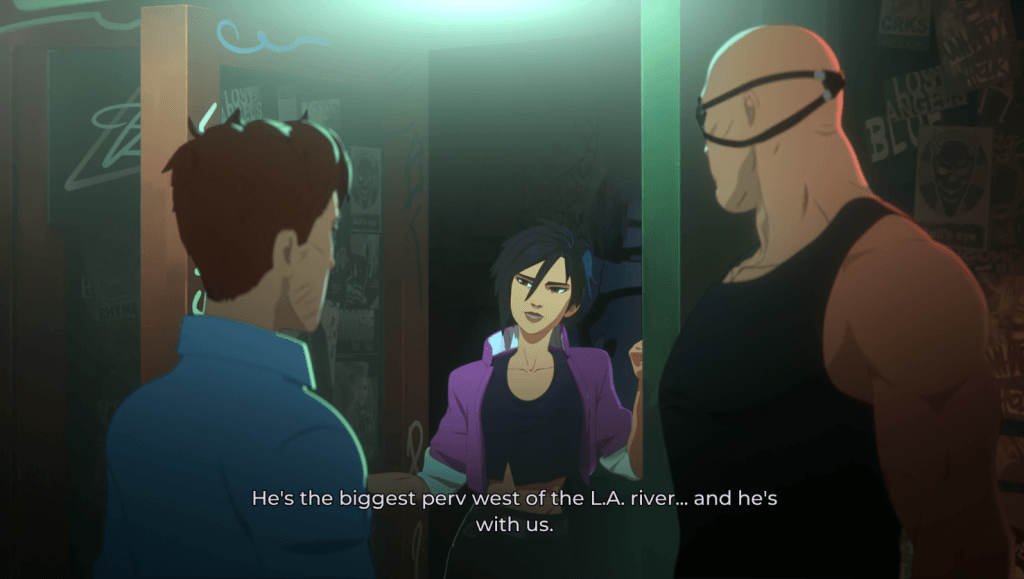
The first four episodes (you can read my reviews of Episodes 1 & 2 and Episodes 3 & 4) primarily focused on exploring Robert’s past and developing his interpersonal relationships with the Z-team. That continues into Episodes 5 and 6.
I understand I’m being repetitive here when I praise the dialogue, but the latter batch of episodes also shift the tone specifically towards more serious subjects and nuanced character developments. It’s the type of escalation I expected as the game went on, but I wasn’t sure if the writers would be able to pull it off — and I’m glad to say that they executed with aplomb.
The final two episodes of Dispatch finally showcase the primary antagonist, Shroud (played by Matthew Mercer, who finally gets some lines). Shroud appeared in Episode 1 but has mainly existed as a background force, both explicitly called by narrative developments but also fairly diegetically in-game as more and more dispatches are caused by the Shroud’s Red Ring gang, which was a subtle touch that really enhanced the world-building and verisimilitude of Dispatch.
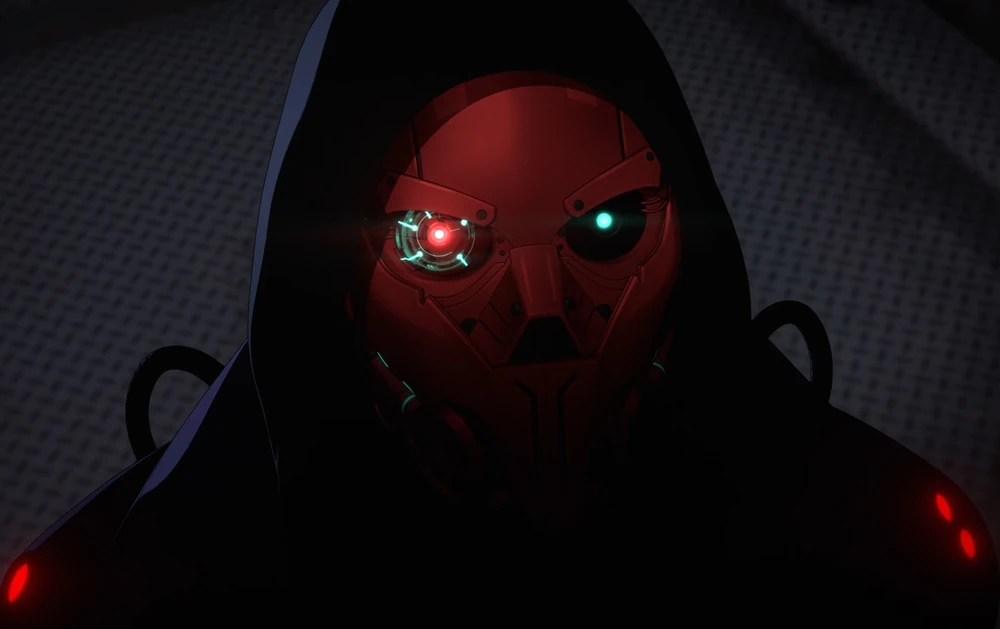
I’m a strong believer in satisfying conclusions being critical to any good story. Dispatch was already good enough in its first six episodes to warrant being worthy of a recommendation just through its character interactions (including with Laura Bailey‘s InvisiGal and Jeffrey Wright’s Chase), charming dialogue, and gameplay even if they somewhat dropped the ball on the finale, but I’m happy to report that isn’t the case. Without going overmuch into spoilers, the final two episodes finally focus on Shroud which kicks the plot into overdrive.
The spread of outcomes in the final episode is wide enough that the idea of your playthrough being one that is dictated by your choices does feel true, if perhaps a bit more constrained than some of the truly sprawling narrative games out there. With that being said, there were even a number of callbacks to decisions made in earlier episodes that I questioned if they would even end up being relevant in prior reviews, so I’m glad to be fully proven wrong on that front.
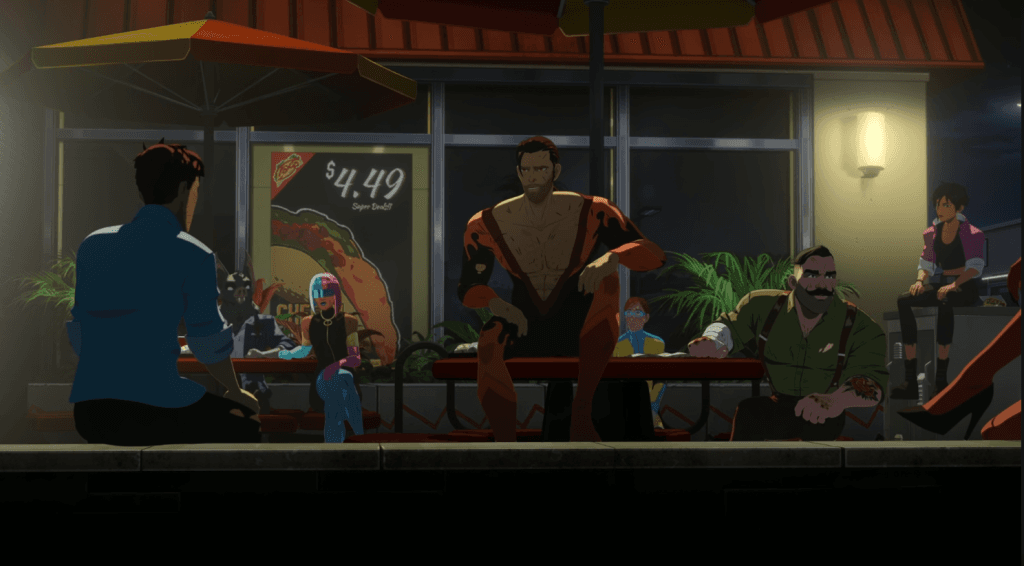
The romantic relationships are strong, but all of the friendships that exist in this game and develop through the episodes are great… Dispatch is a really wholesome, uplifting game, all things considered.
The Rhythm of Dispatch
Episodes 5-7 continue the same basic flow as earlier episodes. If it ain’t broke, don’t fix it, and each episode continues to slowly layer in more and more wrinkles in the hacking and dispatch sections of the game. These additions are just enough to keep the experience novel each time. They provide enough optimization fodder that made repeat playthroughs interesting.
In my first playthrough, I didn’t even unlock two of my hero’s base powers at all, while in my second I made an effort to unlock all of them early, which opened up my mission compositions notably. With that being said, Dispatch is forgiving enough that I don’t believe my mission success rate was significantly determined by passing or failing activities.
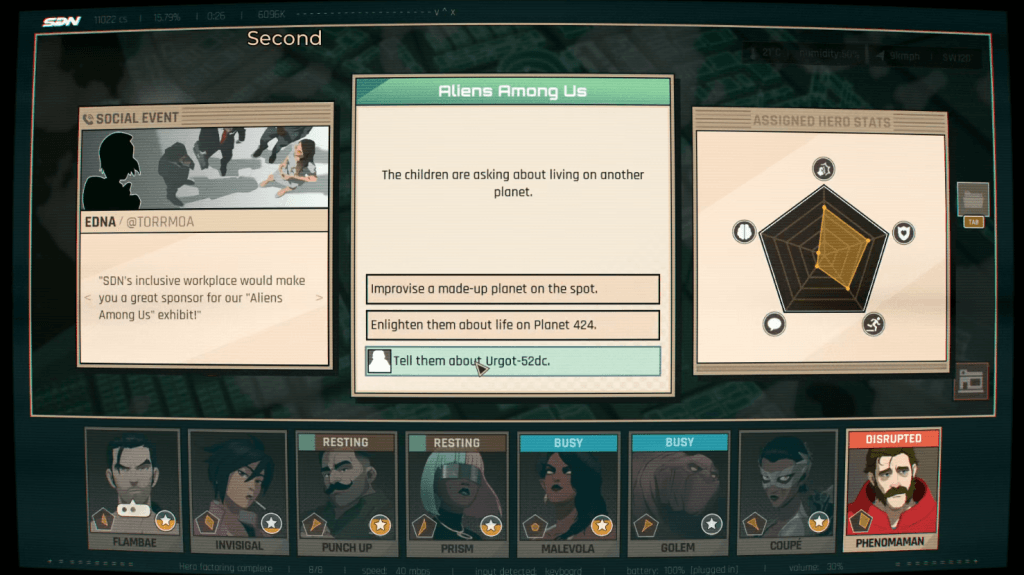
However, there was one gameplay factor I paid particular attention to: Missions often have a special choice available for bringing a specific or certain hero. It can be somewhat reasonably intuited based off of character dialogue or the details of the dispatch. I believe getting those right impacts the post-episode success rate percentile score, which is another neat thing for optimizers to focus on.
If there is one note to be made on pacing or flow, it’s that Episode 7 felt notably shorter than Episode 8, and Episode 8 does end on a fairly long cutscene sequence. That’s to be expected given the nature of the game. While it’s not an unwelcome experience, it is worth noting.
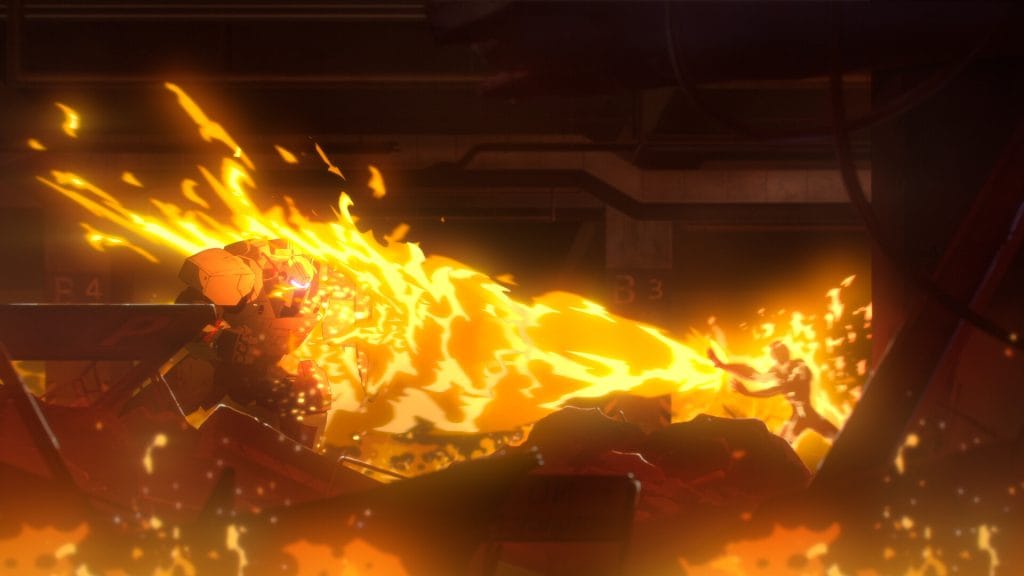
Final (Non-Spoiler) Thoughts
Dispatch is an awesome experience and a really fun ride through it all. Meshing an underdog sports story, workplace comedy, and superheroes seems like a lot, but the writers and performers at AdHoc Studio did a phenomenal job of curating a quirky cast of heroes and villains that will have you clamoring for a Season 2, just like many others already have.
I keep praising the dialogue. The second half of Dispatch shifts the tone towards more serious subjects and nuanced character developments. It’s the type of escalation I expected, but I wasn’t sure if the writers would pull it off — and I’m glad to say that they executed with aplomb.
The scope of its sprawling decision trees might not stand head and shoulders above its peers, but Dispatch gets high marks nearly everywhere else — and also has the most compelling core gameplay loop of any Telltale-like (or is it Telltale-lite?). I do have a lot of spoiler-heavy thoughts on the story, which I’ll include after the score below. It’s the mark of a good story when there’s things to say.
While this is a game you could watch alongside your favorite streamer or experience in a six-hour YouTube video, there’s more than enough here that I would wholeheartedly recommend experiencing it for yourself.
Episodes 5-8 Score: 9.0/10.0
Dispatch Review Overall: 9.0/10.0
Dispatch, developed and published by AdHoc Studio, released eight episodes over the course of several weeks beginning on October 22, 2025 and finishing on November 12, 2025. The game is available on PC (via Steam) and PlayStation 5. MRSP: $29.99 (includes all eight episodes). Version reviewed: PC.
Disclaimer: A review code was provided by the publisher.
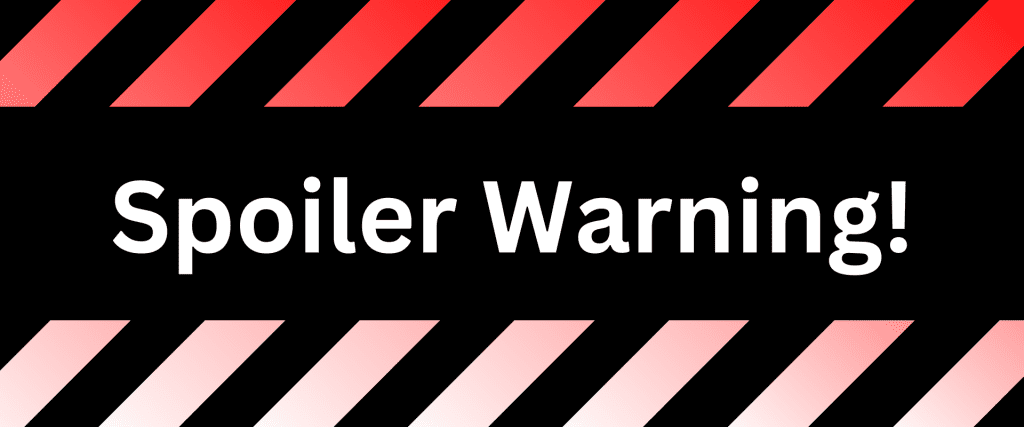
Dispatch Ending Discussion and Spoilers
- The primary decision branches in Dispatch boil down to who you choose to cut at the end of Episode 3: 1) your choices on who to pursue romantically between Invisigal, Blonde Blazer, or neither; and your choice to spare or kill Shroud. I didn’t find that the former played out particularly meaningfully differently if you spared Coupé over Sonar, so from what I can tell most of the internet is focused on the Blonde Blazer versus Invisigal choice. As I played this review I have done runs for both, and it’s hard to choose one over the other — not just between the characters, but between the routes and the cascading differences they cause.
- If I had to provide a very specific, comparison-laden summary: It’s on par with the best of Telltale’s work, except with the point-and-click adventure gameplay swapped out for a reasonably compelling RTS skeleton.
- On Invisigal:
- I was really invested in her redemption arc here.
- I wish we got a deeper dive between Visi and her relationship with Blonde Blazer. They seem a little bit closer to each other than the others in the Z-Team (admittedly, they are both primary characters), and I saw a few people speculating that perhaps they’re roommates (or even sisters). Despite giving her a hard time, Invisigal does seem to really respect Blonde Blazer at the end of the day; between “All I wanted was for you to look at me the way you look at Blazer,” and the hand squeeze at the end?? Hello?? Not exploring the relationship between these two female characters outside of their male romantic interest is a let-down.
- The fact that Invisigal can be redeemed even without romancing her is really great — I was hoping Dispatch would avoid that pitfall and they did. Invisigal and Blonde Blazer aren’t treated with “relationship route equity,” if that makes sense — they aren’t just made to be inverses of each other for Robert’s attention. For example, if you choose to go on the dinner date with Blonde Blazer at the end of episode 4, you see Invisigal’s disappointed reaction, and the same goes for Invisigal noticing Robert dancing with Blonde Blazer at the end of episode 6. But conversley, the games doesn’t ever show Blonde Blazer being sad or disappointed if you choose to go on the date with Invisigal or if you dance with her in episode 6, which is a meaningful directorial choice. It makes sense given that Invisigal operates on axes, one which focuses on her moral direction and one which focuses on her romance with Robert, while Blonde Blazer only has the latter, but it was an interesting touch.
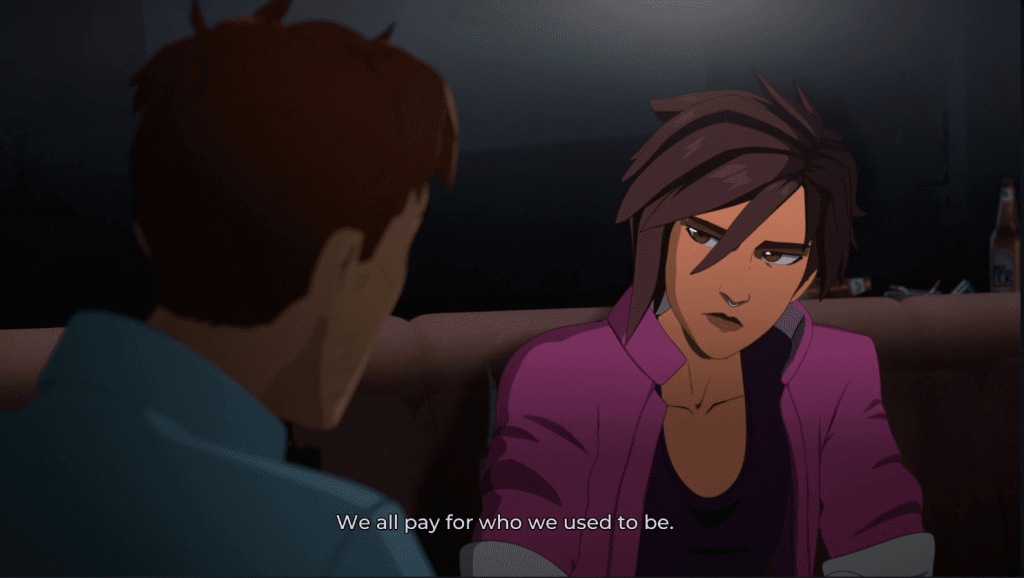
- On Blonde Blazer:
- I’m glad that the outlandish “Blonde Blazer is secretly a villain” theory got debunked. Blonde Blazer is a really nice breath of fresh air in that she really is just a down-to-earth, kindhearted superhero who’s doing her best who has her own personal problems to handle.
- With that being said, she’s not completely flawless, either. She’s self-aware enough to understand that she comes across as a dorky corporate mouthpiece, for one. Blazer also is emotionally cheating on Phenomaman with Robert in Episode 1, but given that she had already made the decision to break up with Phenomaman (and the fact that he’s an alien with questionable emotional baselines) and her youth, I give her a slight pass there. Again, she has flaws, but not backbreaking irredeemable ones. Between Blonde Blazer and this year’s Superman film, it’s been a good year for Hope-ium superhero vibes. (The impending release of the final season of The Boys and DC’s Absolute Universe might have something to say about that soon, however).
- Blonde Blazer’s awesome aura farm moment at the end of Episode 7 was incredible.
- With all this being said, I think Blonde Blazer could have used one or two more romantic scenes in her route to solidify their relationship (the developers have already admitted to cutting some explicit scenes from the game). As I said above, I think some of the imbalance between Invisigal and Blonde Blazer is intentional — Invisigal always being interested in Robert, while Blonde Blazer potentially being interested in him matches their characters — but Blazer really could have used one more intimate moment in her route to make it feel complete.
- In the end, both relationships are incredibly sweet. Not just the relationships, but all of the friendships that exist in this game and develop through the episodes are great. Malevola and Sonar’s extremely close but platonic relationship, Coupé and Punch-Up’s amicable exes thing, Robert and Waterboy… Dispatch is a really wholesome, uplifting game, all things considered.
- Chase and Robert’s banter is super on point, and the flashback scene in Episode 7 is great. I especially love that if Robert asks for beer or cigarettes from the store he will do so, but deliberately tells Robert the wrong way to smoke/gets the most disgusting liquor possible. What a great guy.
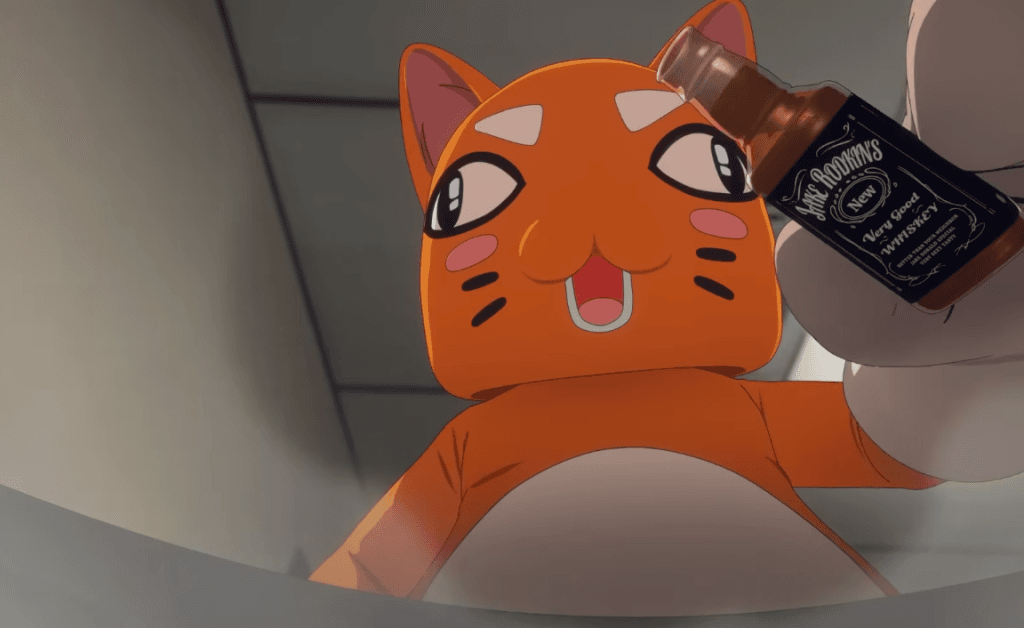
- Other standout moments:
- Robert’s housewarming party in Episodee 6 (before the vibes are poisoned)
- Any scene with Beef in it
- Any scene with the kigurumi catsuit character
- The bar fight in Episode 5
- Every joke about HR violations (of which there are many — violations, not specific jokes)
- Punch-Up’s Henry Cavill arm reload in Episode 8
Huge video game, comic book, and anime fan. Spends way too much time watching things he doesn’t like. Hates Zack Snyder. Mains Falco.


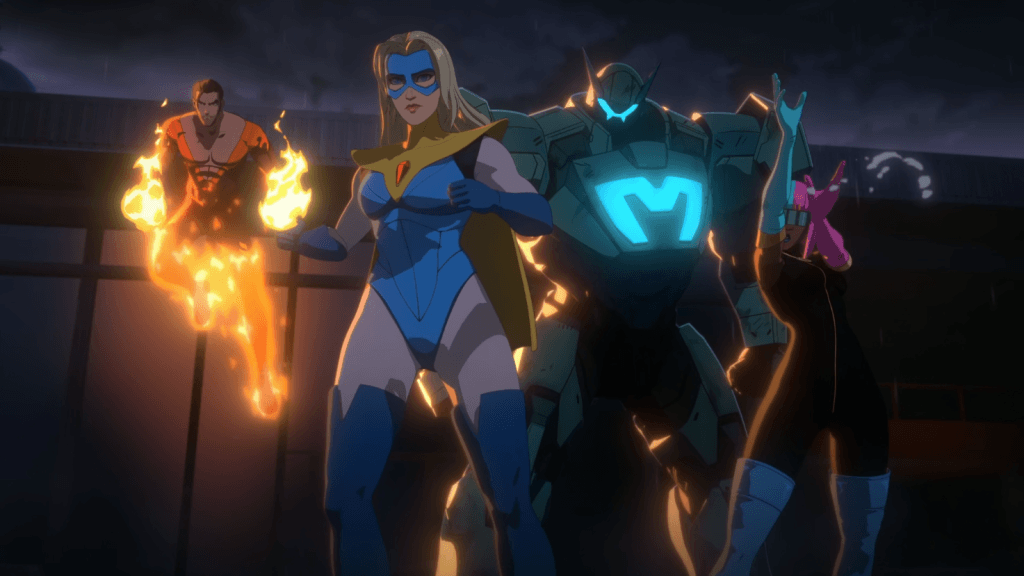





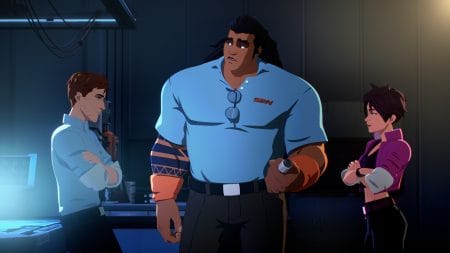
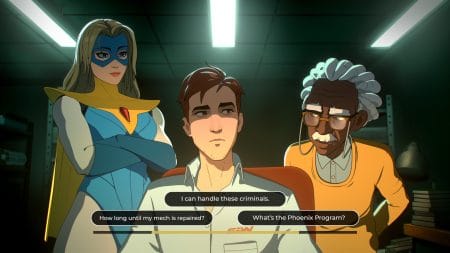

1 Comment
I loved these reviews! Tbh I wasn’t sure I would give it a try, but after your reviews, I think I definitely will.